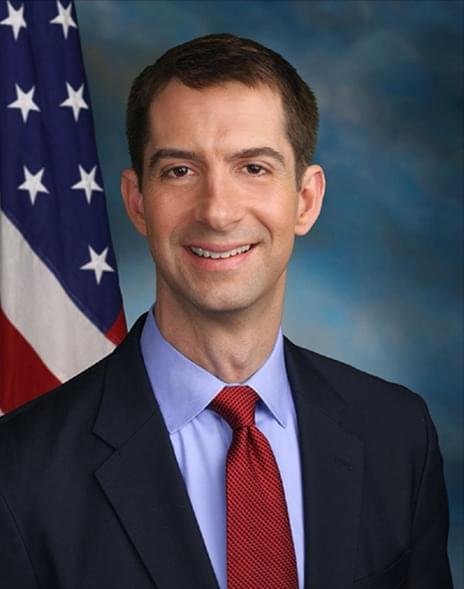Arkansas Gov. Sarah Huckabee Sanders announced Clark, 18, as the winner in a recorded message played during the Arkansas 4-H Awards of Excellence ceremony at the University of Arkansas.
More than 250 4-H members from across the state are convened on the campus for the annual Arkansas 4-H State O-Rama. During the week-long event, 4-H members elect new officers and participate in more than 30 competitive events, ranging from archery and ATV safety to public speaking, poultry judging and performing arts.
“I feel like I’m going out with a bang,” Clark said of her 13 years in 4-H. “I feel very honored. All of us have done so much in 4-H. Any one of the other finalists would have deserved it.”
Three other 4-H members were finalists for the award with Clark: Connor Henry of Arkansas County; Josiah Lillard of White County; and Zach Gardner of Washington County. They each received a $1,000 scholarship.
“All four of you have achieved amazing things for yourself and your communities,” Gov. Sanders said. “I’m proud of each of you.”
Finalists are chosen based on their accomplishments in leadership, citizenship, community service, 4-H projects and activities, and overall contributions to Arkansas 4-H. The four scholarships are sponsored by 4-H alumni Dr. Joel Anderson, chancellor emeritus of the University of Arkansas at Little Rock. The 4-H Governor’s Award winner’s silver tray is sponsored by former 4-H member and agent Darlene Millard.
A winning spirit
“I am struck by the level of passion and excitement each of our finalists demonstrated,” said Debbie Nistler, assistant vice president for 4-H and youth development for the University of Arkansas System Division of Agriculture. “They are amazing examples of the spirit of 4-H, and Kacie truly embodies that spirit.”
Earlier Thursday, Clark competed in the performing arts vocal competition, singing “Deeper than the Holler” by Randy Travis. After she took her seat, she clapped and called out encouragement to her competitors.
The 4-H way is to learn by doing through project work, and Clark has learned something new every year. On Thursday, she competed in interior design for the first time.
Clark joined 4-H when she was 5 years old, and she showed a pig at a county fair during her first year. She has had projects in healthy living, fine arts, performing arts-vocals, public speaking, forestry and poultry. She helped organize the first 4-H Food Challenge team to compete in culinary skills and has served as a 4-H camp counselor and a Teen Leader. For the past year, she has served as vice president on the 4-H State Officer Team.
Clark plans to attend Arkansas State University-Beebe this fall and then transfer to ASU-Jonesboro or the University of Arkansas to pursue a degree in agricultural business.
That doesn’t mean she’s done with 4-H. Clark said she plans to remain active in 4-H as a volunteer and wants to lead a Cloverbud Club in Faulkner County.
Clark’s two older brothers, Brent and Travis, both previously served as 4-H state presidents and were finalists for the Governor’s Award.
Shortly after Clark received the award, text messages began arriving from her family watching via livestream.
Her brother, Travis, texted his one-word congratulations: “Nice!”
To learn about 4-H, contact your local Cooperative Extension Service agent or visit 4h.uada.edu.
To learn about extension programs in Arkansas, contact your local Cooperative Extension Service agent or visit www.uaex.uada.edu. Follow us on X and Instagram at @AR_Extension. To learn more about Division of Agriculture research, visit the Arkansas Agricultural Experiment Station website: https://aaes.uada.edu. Follow on X at @ArkAgResearch. To learn more about the Division of Agriculture, visit https://uada.edu/. Follow us on X at @AgInArk.






















